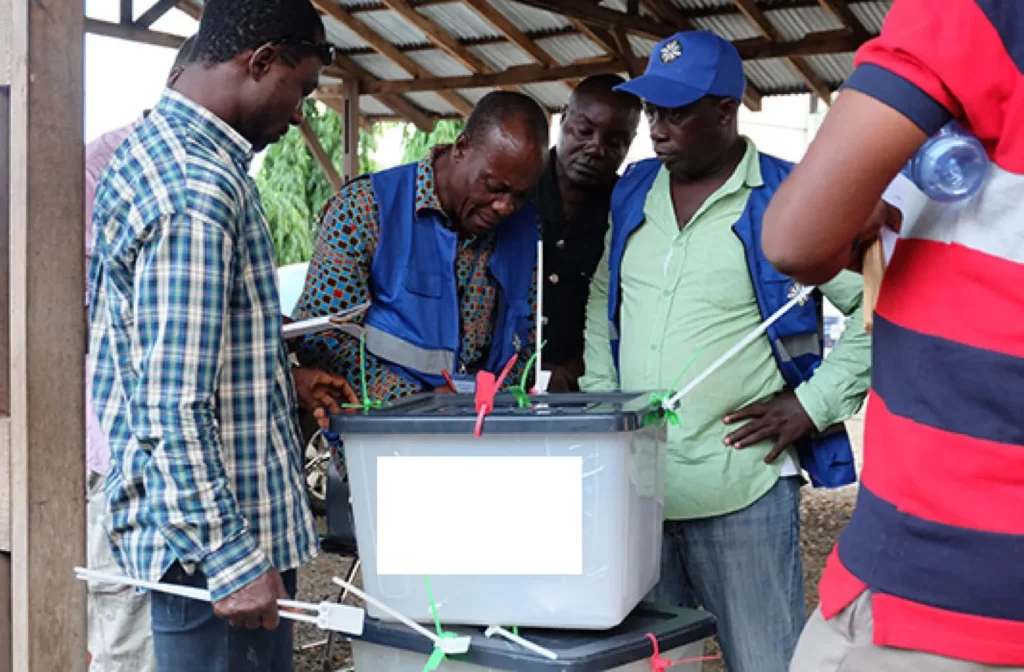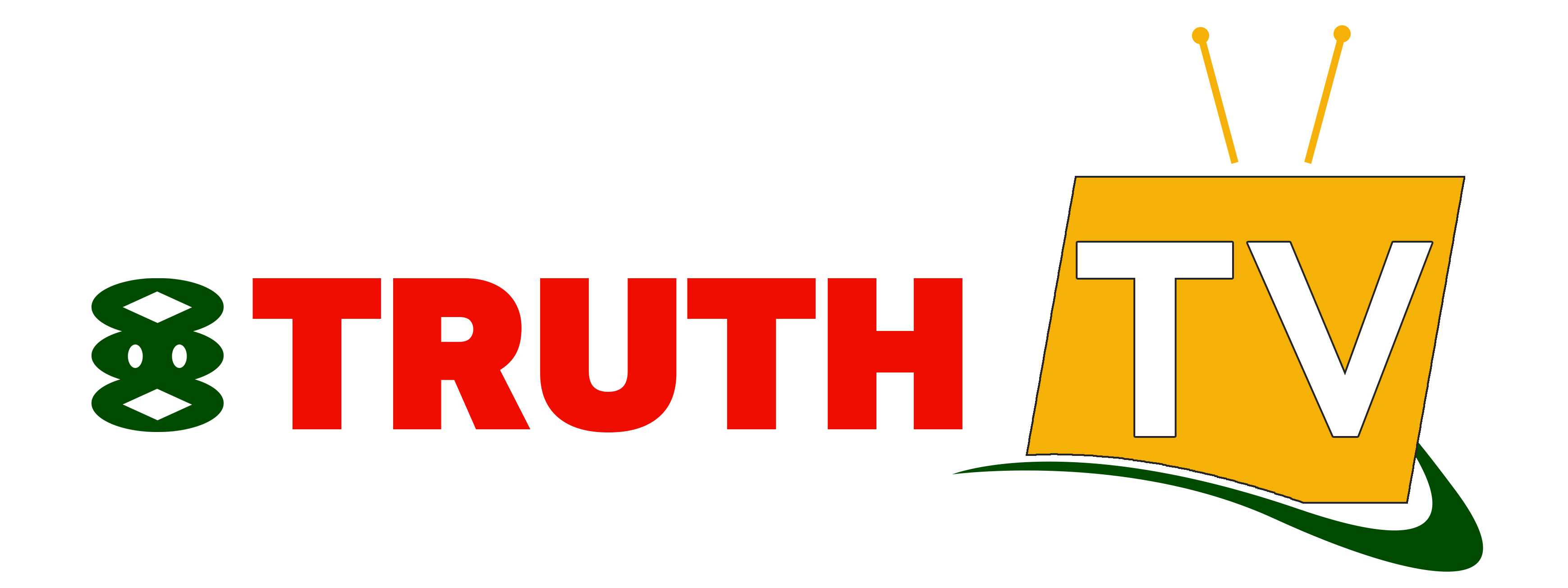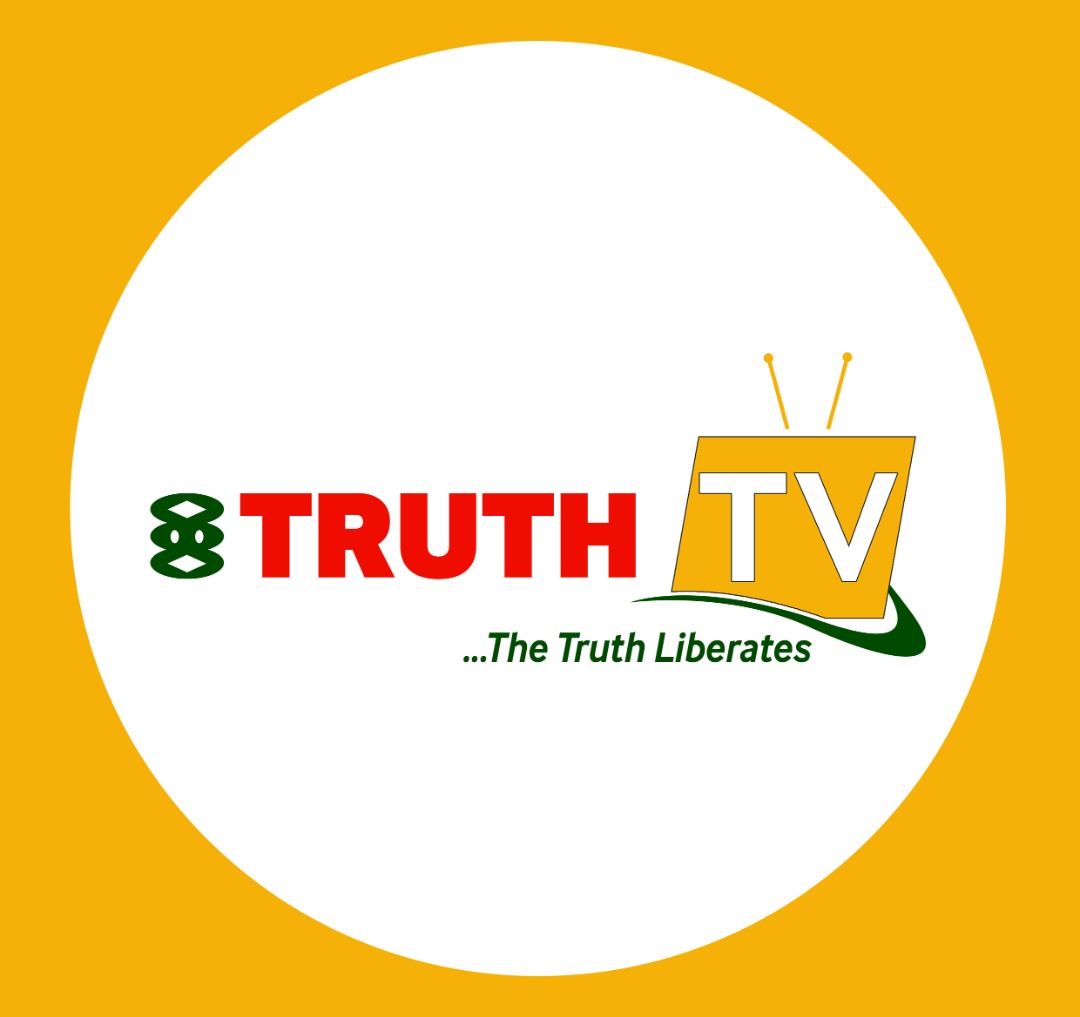
Democracy is at stake in Africa as election misinformation and disinformation constantly pose significant threats to its establishment in today’s interconnected digital society. The proliferation of misinformation and disinformation has become a pressing concern for electoral authorities, civil society organisations, and citizens.
According to the Global Risk Report released by the World Economic Forum, Information disorder holds the top slot in the short term, indicating how misinformation and disinformation can radically disrupt electoral processes in several economies.
While the struggles against election disinformation seem fairly won in Nigeria, Liberia, and Sierra Leone when they made their choices at the poll in 2023, Ghana will decide her fate at the ninth election since the Fourth Republic was established. The jury is still out on whether the country, often hailed for smooth transfer of power, will learn from its West African neighbours and safeguard the sanctity of the ballot box amidst the deluge of false narratives and misleading information.
In this report, DUBAWA intends to analyse and unravel the complexities of election misinformation in West Africa and illuminate the path forward for Ghana as it prepares to forge a historical moment in the electoral course. By meticulously examining the actors, behaviours, strategies, and impacts associated with election misinformation, we aim to equip stakeholders with the requisite knowledge to confront this formidable challenge head-on and safeguard the integrity of the electoral process for generations.
Objectives of the report
- To examine the distribution of misinformation on both traditional and modern media platforms in countries, as mentioned earlier, and how it played out in the electoral process.
- To reveal the behaviours and strategies used by the leading actors of election misinformation before, during, and after the election period in the countries above.
- Extract practical lessons for Ghana from the countries’ experiences and propose actionable recommendations.
2023: Overview of Elections in West Africa
The year 2023 was a pivotal moment in West Africa’s democratic history. It was marked by a series of elections across the region’s landscape with the promise to shape the destinies of affected nations and their people through political battles and alliances.
An estimated 240.3 million citizens in three West African countries- Nigeria, Liberia, and Sierra Leone went to the polls in 2023 to elect leaders they hoped would transform their challenged economies and improve their living standards. Nigeria set the election ball rolling with its election on February 25, 2023, followed by Sierra Leone on June 24, then Liberia on October 10, with a run-off on November 14, which toppled the incumbent president George Weah.
Nigeria in Perspective
Nigeria was a prime example of how information disorder contributed to the tension experienced in the 2023 presidential election. More than 83 election-related claims were fact-checked before and during the election in the country. Some of these claims not only led to crises in some violence-prone communities but also caused some electorates to avoid participating in the election entirely.
Security concerns, ambitious reforms, and election disinformation punctuated every aspect of the election in Nigeria during the year under review. At the end of the elections, Bola Tinubu of the All Progressive Congress (APC) emerged victorious in the presidential race. It was a fierce contest, evidenced by the spirited debates and contrasting visions for the nation’s future following the eight-year rule of the Muhammadu Buhari-led administration. Perhaps nothing else showcased the intense war better than the level of mis/disinformation that permeated the information ecosystem at the time. Despite his victory against opposition from various political factions, including Atiku Abubakar of the People’s Democratic Party (PDP), Peter Obi of the Labour Party, and Rabiu Kwankwaso of the New Nigeria Peoples Party (NNPP), the trend never stopped, even after the Supreme court passed the final verdict in Tinubu’s favour. There were also indications that the election-related information disorder exacerbated the economic and security crises the country has been battling since the election.
Sierra Leone in Perspective
In Sierra Leone, a nation grappling with economic uncertainties and governance challenges, incumbent president Maada Bio of Sierra Leone’s People Party (SLPP) emerged triumphant in the presidential race. However, his victory was rejected by oppositions like the All People Congress’ Samura Kamara, who alleged cases of vote count irregularities and lack of information about some details in the electoral process as a bane to the credibility of the election result.
The elections were also with palpable cases of disinformation. DUBAWA tracked cases of bots, impersonation, and disinformation targeted at the two leading contenders in that election on two major social media platforms- Twitter (now X) and Facebook. While the elections were ongoing, agents of disinformation at both ends of the political divide were at their crescendo, polluting the election environment with unwholesome content in desperate search for political power. In a live election fact-check conducted by DUBAWA during the election and immediate aftermath, cases of imposter content and other misleading content were hard to miss.
Liberia in Perspective
Then came Liberia, amidst the economic hardship and political tensions heralding the presidential election while healing from the scars of the 1989 Civil War and related clashes in 2003. Joseph Boakai of the Unity Party (UP) triumphed after slugging it out with the incumbent president, George Weah of the Congress for Progressive Change (CPC), Alexander Cummings of the Alternative National Congress, and other candidates for the topmost political seat in Liberia.
DUBAWA’s inquisition about disinformation strategies in the Liberia elections gave birth to multiple incidents of polluted election content. For instance, before the elections, the case of who topped the election disinformation campaign chart showed how political agents imbibed election disinformation as a political strategy. DUBAWA also found a contest of premature election victory declarations in what may be part of disinformation’s psychology.
Further examination in all three elections revealed how recent technological advances amplify falsified information’s volume, reach, and efficacy beyond control. The information disorder pandemic was not propagated by humans alone, as human-operated social robots and other artificial intelligence-generated tools also strategically disseminate information that promotes mischievous intentions. Social media usage in those elections was another cause for worry in fuelling mistrust in the electoral processes.
The findings in these elections, backed by empirical studies and research on the broader landscape of global trends, indicate far-reaching implications for democratic governance, social cohesion, and political stability. From the dissemination of fake news via social media platforms to the manipulation of public discourse through targeted disinformation campaigns, the tactics employed by malicious actors continue to evolve and adapt to the digital age.
The issues in these elections –economic, social, health, etc– were similar yet significantly different in their nature and complexities. The stakes were exceedingly high, with each party vowing to win political power by fair or foul means, as the team of researchers from DUBAWA found.
Misinformation trends: Commonalities and differences
Information disorder in all its forms played out in the countries’ democratic activities within the period. Different players were involved in the spread of misinformation and disinformation using diverse media and tools. As there were perpetrators, victims also exist in varying proportions. DUBAWA actively monitored the information ecosystem across the three countries under review and made astounding discoveries close-knit with the election period.
Social media’s quintessential role in democracy and its disposition globally is without question. It holds more sway in influencing electoral decisions and impacting their outcomes. However, the misuse and abuse largely contributed to the unstable information ecosystem in West Africa amidst tensions. For example, perpetrators in Nigeria and Liberia shared false information primarily on Facebook, leveraging the platform’s wide reach and the followers limited media and digital literacy level, then disseminated it through Twitter for traction and discussion, reflecting the concerted efforts of certain politically motivated groups like the #Obidients, #Atikulates and #BATists, to manipulate online conversations and sway public opinion. These support groups, including individuals and influencers, played significant roles in perpetuating misinformation, leveraging their social media presence to propagate false narratives and distort reality.
Furthermore, the prevalence of bots added another layer to the information pandemic, amplifying false narratives and creating the illusion of widespread support or opposition for certain candidates or parties in Nigeria and Sierra Leone. These automated accounts, often operated by malicious actors, contributed to the erosion of trust in online information and complicated efforts to discern fact from fiction.
While cases of fake press releases were also massively identified in Sierra Leone and Nigeria, radio emerged as a more significant contributor to misinformation in Liberia and Nigeria. Despite the rise of digital platforms, radio remained a dominant medium for information dissemination, particularly in rural and remote areas with limited access to the Internet. This reliance made them susceptible to manipulation by political actors seeking to spread false narratives and sway public opinion, highlighting the enduring influence of traditional media in shaping electoral dynamics.
Strategies deployed
Social media platforms emerged as critical battlegrounds for misinformation and disinformation dissemination. According to data collated by DUBAWA, 62.7% of the presidential election-related claims fact-checked were from Twitter, which also had 80.4% of the governorship election-related fact-checks in Nigeria. Facebook, holding 19.2% and 68.4% of the presidential and governorship election claims, respectively, also played a significant role.
In Sierra Leone, the prevalence of bots and impersonation on Twitter showed the sophistication of deceptive tactics employed by malicious actors to manipulate public opinion, with about 39 bot accounts impersonating prominent political persons in the country, 66.7% of which were on Twitter.
Visual content, including videos and pictures, was favoured for spreading false narratives, with 55.4% of presidential election claims in Nigeria and 50% of governorship polls in video format. In Liberia, 47.3% of claims were in pictures, while videos constituted 10.5%, indicating a preference for claims in visual forms.
Moreover, the cross-dissemination of misinformation between social media platforms, such as Facebook and Twitter, further compounded the challenge of combating falsehoods. For instance, 15 claims originated between Facebook and Twitter, while six were sourced from websites and cross-disseminated on Liberia’s active social media platforms.
The electoral bodies, such as Nigeria’s INEC and Liberia’s NEC, were targeted with negative narratives to undermine public trust in their activities. Liberia’s NEC had sad tales to tell after suffering more than 50% of claims fact-checked that portrayed them negatively. Though limited data exist to analyse the misinformation level directed at Nigeria’s INEC, the Commission has suffered vile and derogatory comments a year after successfully conducting the presidential and governorship elections (including the off-cycle polls).
Implications for Ghana
As Ghana prepares for its upcoming presidential election, it faces the critical challenge of navigating the dangers posed by information disorder —a challenge starkly illustrated by the experiences of neighbouring countries in the region. Understanding the implications of information disorder and drawing insights from the lessons learned by these nations can provide valuable guidance to ensure a free, fair, and credible electoral process.
As the data may have shown, one of the primary dangers of election disinformation is the erosion of public trust and confidence in the electoral process and the efforts of the Electoral Commission of Ghana (EC). Misinformation and disinformation can sow seeds of doubt and confusion among voters, leading to a loss of faith in the integrity of the electoral outcome. This was evident in Nigeria, where the spread of false narratives on social media threatened the credibility of the election and fuelled distrust in the electoral process. Even Liberia suffered the same fate after the National Elections Commission bore the brunt of misinformation before the election results were announced.
Furthermore, information disorder can exacerbate existing societal divisions and tensions, potentially leading to social unrest and instability. In Nigeria and Sierra Leone, for example, misleading information disseminated during the election period contributed to political tensions and protests, highlighting misinformation’s divisive impact on society’s fabric.
Moreover, information disorder can hinder the ability of citizens to make informed decisions and engage meaningfully in the democratic process. False narratives and misleading content can distort public discourse and discourage voters from making informed choices. Nigeria is a prime example, where misinformation clouded the electoral landscape and hindered citizens’ ability to assess the merits of competing candidates and parties.
Recommendations
- Amplifying Media Literacy Programmes
In preparation for the upcoming election, Ghana must prioritise enhancing media literacy programs to equip citizens with the skills and knowledge necessary to evaluate information critically. This can be achieved through developing comprehensive educational curricula focused on digital literacy, critical thinking, and information verification techniques. While countries like France and Britain are frontrunners in propagating media literacy education at different levels of schooling, only South Africa can boast of this in sub-Saharan Africa.
Additionally, public awareness campaigns can be launched to promote media literacy initiatives and encourage citizens to actively engage with diverse sources of information while remaining vigilant against spreading misinformation. For instance, member organisations in the Nigeria Fact-checkers Coalition (NFC) invested prominently in media appearances and campaigns promoting the gospel of media literacy in the country.
- Institute a Fact-Checking Coalition in Ghana
Building on the success of fact-checking initiatives in other countries, Ghana should consider establishing a Fact-Checking Coalition composed of media organisations, academic institutions, and civil society groups. This coalition can serve as a centralised hub for verifying electoral information, debunking false narratives, and disseminating accurate and reliable information. By pooling resources and expertise, the Fact-Checking Coalition can enhance the effectiveness of fact-checking efforts, increase public trust in the electoral process, and serve as a bulwark against the spread of misinformation during the election period.
The Nigeria Fact-checkers Coalition (NFC) and the Liberia Fact-checking Network (LFN) were collaborative attempts to combat misinformation and promote media literacy in their respective countries to devastating effects. For instance, the NFC team diligently scrutinised more than 127 claims circulating during the electoral period, ranging from viral social media posts to misleading political statements, which more than 12 media organisations redistributed for publicity.
- Collaboration Between Government, Media, and Civil Society
Ghana should foster greater collaboration between government institutions, media organisations, and civil society groups to combat election misinformation effectively. This collaborative approach can involve establishing multi-stakeholder task forces or working groups dedicated to monitoring and addressing instances of misinformation.
Also, regular dialogue and information-sharing mechanisms should be established to facilitate coordinated responses to emerging threats and ensure transparency and accountability in managing electoral information.
- International Cooperation and Information Sharing
Recognising the transnational nature of misinformation threats, Ghana should actively engage in international cooperation and information-sharing initiatives to combat election misinformation. This can involve participation in regional forums, partnerships with international organisations such as the United Nations and the African Union, and collaboration with foreign governments and civil society organisations. The Voluntary Election Integrity Guidelines for Technology Companies released by the International Foundation for Electoral System (IFES) was the product of collaborations between Google, Meta, and Microsoft, among others, to fortify elections and democracy globally. By sharing best practices, exchanging information, and coordinating efforts with international partners, Ghana can enhance its capacity to detect and mitigate the spread of misinformation across borders.
Source: ghana.dubawa.org

